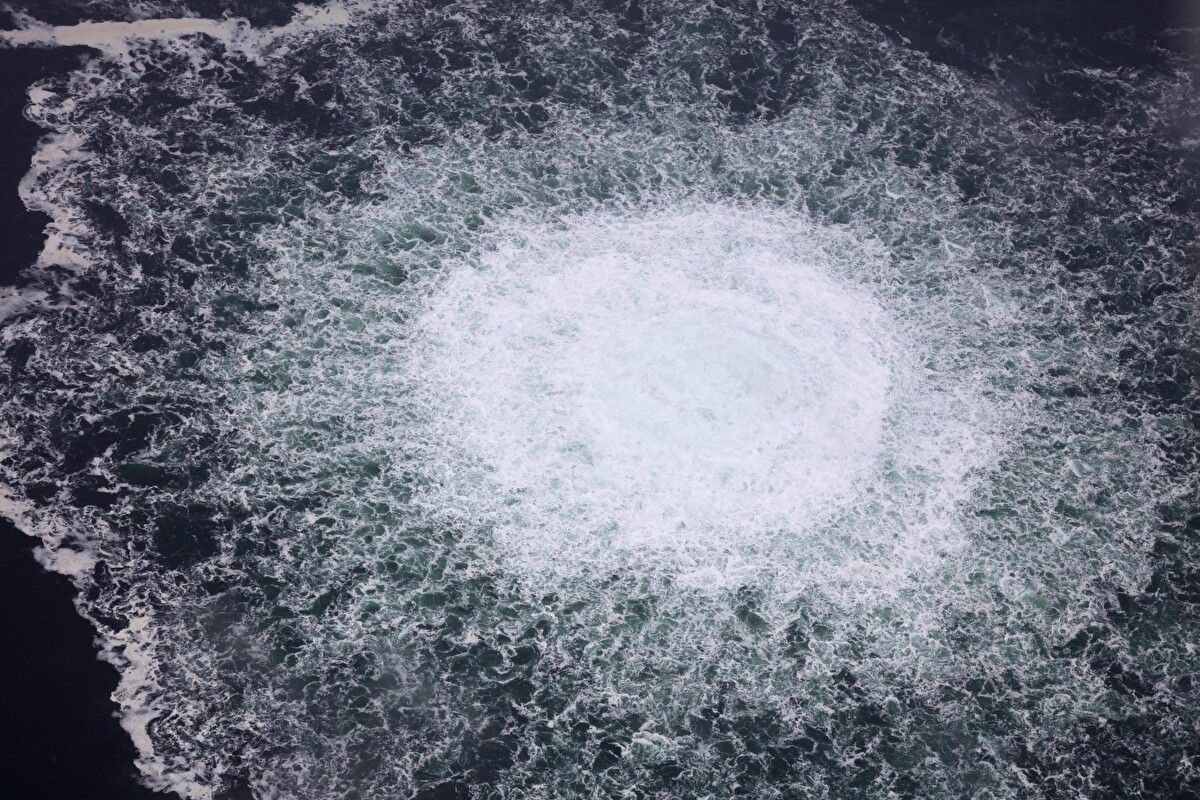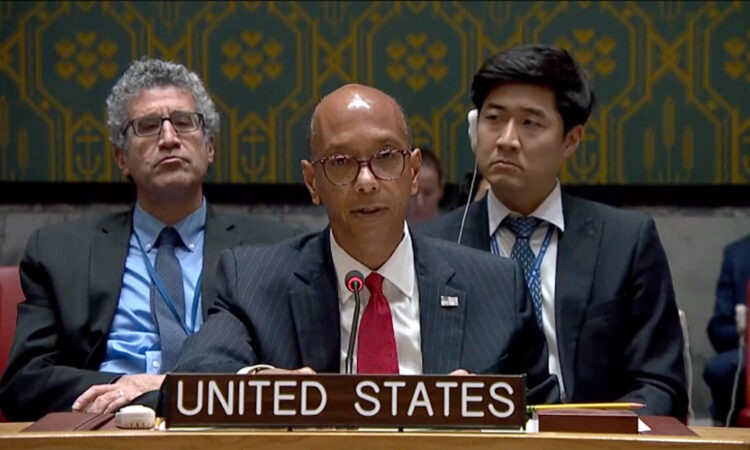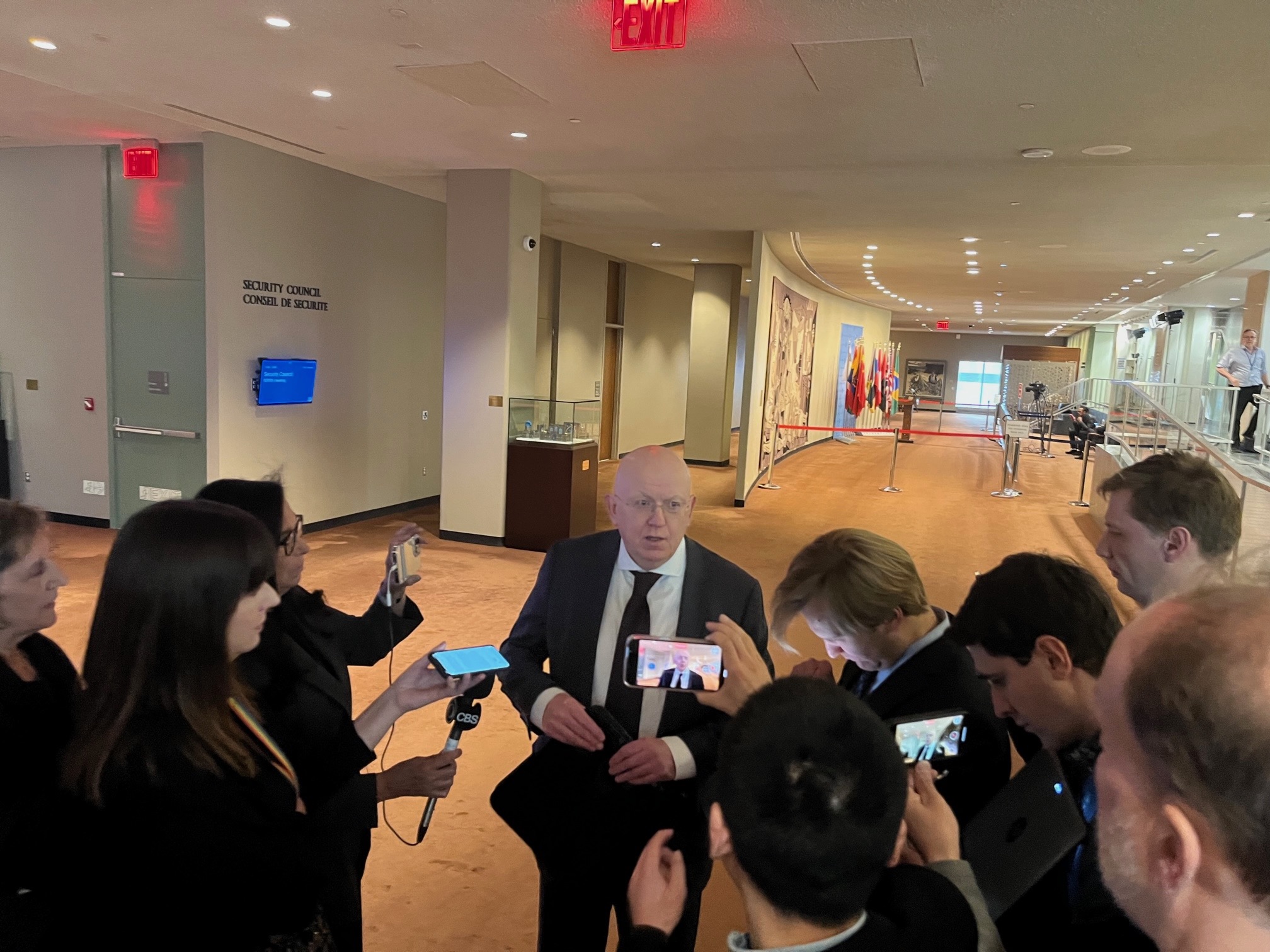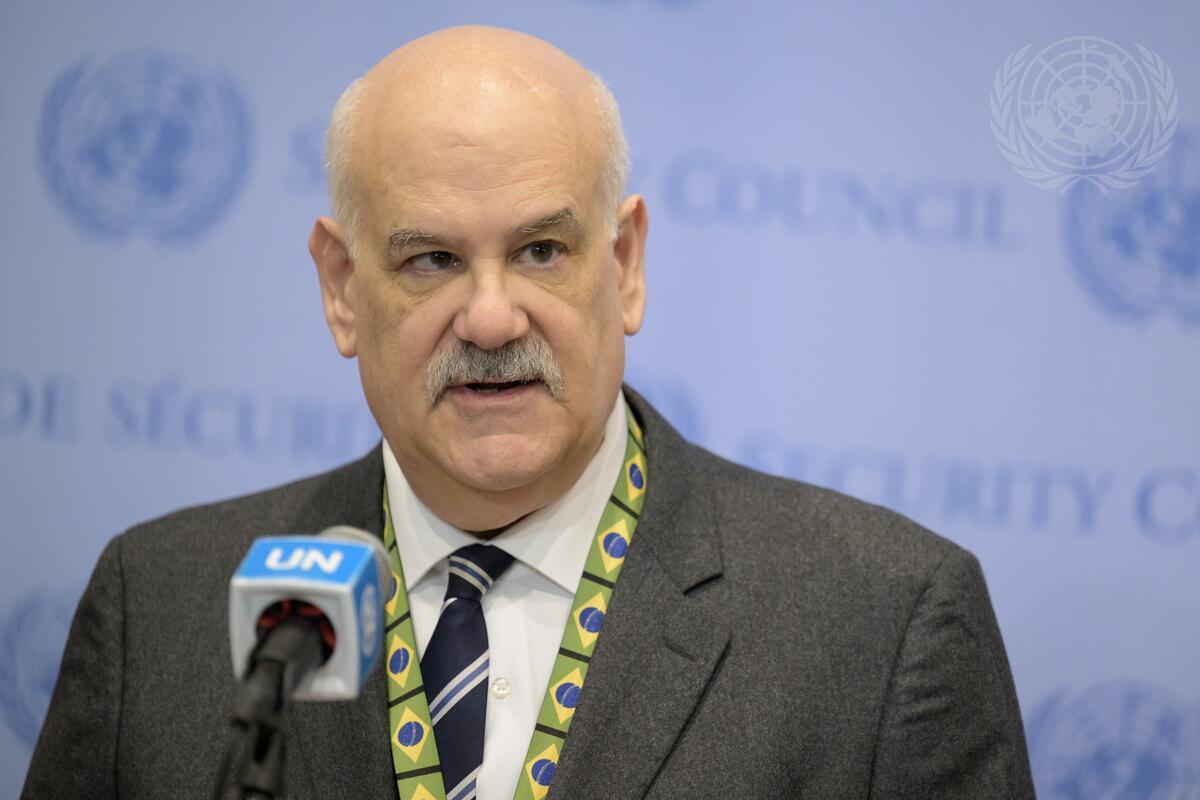Russia’s resolution, co-sponsored by China calling for an international investigation into the sabotage of the Nord Stream 1 and Nord Stream 2 gas pipelines, did not pass the United Nations Security Council on Monday. Three voted in favor (in addition to Russia and China, Brazil), none against, the other twelve members of the Council abstained. So the resolution proposing to UN Secretary-General Antonio Guterres to establish an independent international commission to conduct a comprehensive, transparent and impartial investigation into all aspects of the act of sabotage on the Nord Stream gas pipelines, failed to take the 9 votes in favor needed to be approved, in the absence of a veto from the permanent members.
The document also encouraged the three countries conducting their own investigations (Sweden, Denmark and Germany) to cooperate fully with the commission and to share all information also with the Council.
Russia had already prepared the first version of the Nord Stream resolution in late February, but instead of immediately bringing it to a vote, it had invited Security Council members to discuss the document to try to build consensus to get it approved.

“Without an objective and transparent international investigation, the truth about what happened will not be discovered”, said the Russian ambassador Vassily Nebenzia before the vote.
In statements after the vote, the United States reiterated that it was “not involved in the attack in any way”, and that Russia’s was an attempt to “politicize” the investigation, given that the Russians “had already stated that they were certain that the US was responsible but without having brought any evidence to the Council”. According to the Americans, the Russian resolution was an attempt to discredit the investigations being conducted by Sweden, Denmark and Germany, which instead deserve trust.
When at one point in the debate, Russian Ambassador Nebenzia said that certain allegations directed against the United States that his delegation had made “after reading the article by investigative journalist Seymour Hersh“, Ambassador Robert Wood, who stood in for Ambassador Linda Thomas-Greenfield, replied: “First and foremost, I don’t read Seymour Hersh’s articles. And frankly, I don’t base – the United States doesn’t base– its policies or respond simply to charges by an individual journalist.”

The American representative accused his Russian colleague of hypocrisy when, in his speech, he said that it was essential that international law be respected on the protection of infrastructures such as the Nord Stream from attacks of this kind. Wood replied: “Russia has no credibility when it comes to this issue of protecting critical infrastructure. Just look at what it’s doing to Ukraine. So, I would just say to my Russian colleague, instead of asking questions about the United States and its views toward critical infrastructure, it needs to ask itself about what it’s doing in Ukraine and whether that shows responsible behavior with regard to critical infrastructure.”
Nebenzia also repeatedly asked his other colleagues what they thought of the fact that US President Joe Biden himself had “announced his intention to destroy Russian gas pipelines”, referring to Biden’s famous press conference with German Chancellor Olaf Scholz which took place a few weeks before the Russian invasion of Ukraine. On that occasion, the US president, answering a question from a journalist, actually seemed to threaten action against the Nord Stream gas pipelines.
At the end of the Council meeting, as now often happens, no ambassador showed up at the stakeout to answer questions from journalists under the UNTV cameras. So we had to chase them once again in the corridors of the UN.
The first diplomat we meet is Lana Nusseibeh from the UAE.

Ambassador, you abstained like the majority, but you asked for certain times for the end of the investigation. Why would another commission of inquiry, this time an international one, have been counterproductive?
“I believe that other members of the Council have also expressed the need for the investigations to have a deadline, for the times to be established. It is important that the results of these investigations are shared with all the relevant actors in this affair and as soon as possible. I think there is consensus in the Council in condemning the attacks on gas pipelines but also on the need for investigations to be speedy and for there to be collaboration because the security of energy infrastructures worries everyone”.
So do you trust that in this case Sweden, Germany, and Denmark will finish soon and bring you the results?
Here the ambassador of the Emirates has a moment of hesitation, smiles and then leaves us with these words: “I don’t have the details, I believe that the competent authorities for the investigation know what they have to do and know that the international community awaits their conclusions “.
All the journalists stand around Russian Ambassador Vassily Nebenzia, but at that moment we see walking away in solitude US Ambassador Robert Wood. We run after him:

Ambassador, satisfied with the vote? Brazil voted in favor of the Russian resolution saying it did not see any contradiction between the establishment of the international commission and the continuation of the investigations underway so far.
“Brazil voted as it felt it should. I am not in a position to comment on their vote. The majority of the Security Council has decided that it is necessary to wait for the conclusion of the ongoing investigations and I believe that this is the responsible position to take among all those that have been heard. And the result of the vote proves it”.
Does the US believe it is fair to ask for a “deadline” for these ongoing investigations?
“Absolutely not. Investigations have to take as long as it takes to get to the truth and so I don’t think imposing a deadline helps the success of the investigation.”
But do you at least believe that Sweden, Denmark and Germany should share their investigations with the Security Council?
“I cannot speak for the rules that these investigative institutions have, on their jurisdiction, etc. I am not able to comment on them. I believe that these investigations need the necessary time”.
By now the American ambassador is taking the escalator and it will no longer be possible to press him. So we quickly ask him:
Ambassador Wood, but will you at least read Hersh’s article?
“No”, and he disappears smiling.
Once the Russian ambassador Vassily Nebenzia appears in front of us, we ask him a question before he too can enter the escalator:

Ambassador, but between the investigations of Sweden, Germany and Denmark, isn’t there anything that Russia could trust, at least a little?
“No. Now we call all three ‘unfriendly countries’.”
Not even one is saved?
“Nobody”.
But not even Denmark, which a few days ago involved you in its latest discoveries?
“This happened because we were knocking on their door all the time, and in the end they had to show something to signal their cooperation, but it’s not enough.”
Why did you present the resolution if you knew it didn’t have the votes to pass? China seemed annoyed, perhaps waiting a little longer, with other negotiations.
“For this resolution we have held consultations for much longer than in any other resolution. We have introduced many suggestions that other countries had proposed, but this issue is now political, it is no longer technical”.
You will be chairing the Security Council next month and earlier I heard you tell reporters that Foreign Minister Lavrov is coming. In recent months, the Security Council on Ukraine never discusses how to find peace. Maybe with Lavrov’s arrival at the UN and the Russian presidency of the Council, something will change?
Nebenzia looks us straight in the eyes and then says: “I hope so”.

While everyone, including the journalists, has disappeared and we are about to go back to the office, here we see the diplomat who interests us most today, the ambassador Ronaldo Costa Filho, surrounded by his staff. Brazil voted with Russia and China on the resolution, when we get closer it doesn’t seem true that there are no other colleagues around.
Ambassador Costa Filho, you voted for the resolution but you also made it clear that it is not a vote of no confidence in the investigations of Sweden, Denmark and Germany. But why wouldn’t their investigations be enough to find the perpetrators of the attack?
“Because it’s been six months and we don’t know anything.”
I just spoke to US ambassador Robert Wood and asked him if there should be a deadline for the investigation, and he immediately replied no, for the US, investigations need all the time they will need. What do you think?
“I can’t answer that question. He has his opinion. I’m not saying the investigation should be concluded now, but there should already be indications of where they are, and instead we have nothing.”
Brazil is getting into the habit of voting with Russia in the Security Council…
“No, it doesn’t seem accurate to say that. We voted consistently condemning the invasion. The only time we didn’t vote on the resolution was in the General Assembly when it called for the expulsion of Russia…”.
Just a few days ago, you voted with Russia to let a humanitarian speak but you were once again in the minority.
“But that was a procedural vote. We cannot say we are on Russia’s side.”
Let’s say then that Brazil in recent times shows independence or rather, “unpredictability”, in its vote?
“No, absolutely not. Independent doesn’t mean unpredictable. We decide on the merits of issues, which means we don’t always vote one side or the other. Brazil votes based on how it perceives the issue at hand. That’s the definition of independence. This is the definition of democracy, when one can express his conscience through the vote”.
Does this independence also help to obtain the position of permanent member in the eventual reform of the Security Council?
“We don’t think in those terms. In this case one thing doesn’t tie into the other. We don’t vote a certain way now thinking about the reform of the Security Council…”
Ambassador, let’s talk about peace: very little is heard of it these days in this institution. Next month, Russia will hold the rotating presidency of the Security Council. Lavrov will come here to New York. As an seasoned diplomat, do you think that something new could happen next month? A different approach, by peace I mean.
“It takes the will on both sides to sit down and discuss peace. We’ve been asking for it for a long time, for the whole year. The parties will have to sit down and discuss”.
Could Brazil be an “honest broker” for peace?
“President Lula has already offered to help make this happen, along with others.”












